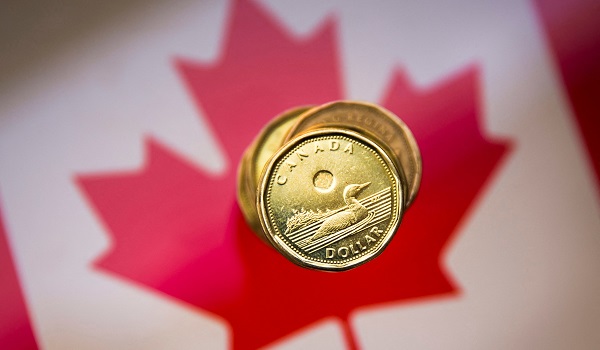Not only Canadians and Americans will get hurt by the steel tariffs – including a Trump supporter who bought Stelco last year, experts say
When U.S. President Donald Trump imposed tariffs on steel and aluminum imports this week, it wasn’t just a shot at Canada. He also managed to side-swipe one of his most vocal allies in the steel industry.
In November, American steel giant Cleveland Cliffs swallowed up Stelco, the pride of Hamilton and Canada’s second largest steel company, for $3.4 billion.
At the time, the deal was touted by then finance minister Chrystia Freeland as proof that the Canada-U.S. trade relationship will be fine, pointing out that Cleveland Cliffs CEO Lourenco Goncalves is a long-time supporter of Trump.
This week, Trump announced across the board 25 per cent tariffs on steel and aluminum imports, prompting outrage and concern from politicians, businesses and union leaders, who said the tariffs put thousands of Canadian jobs at risk.
Still, said supply chain guru Fraser Johnson, Cleveland Cliffs will likely recover in time, even if Stelco’s 1,800 employees might be forgiven for being a bit nervous.
“You don’t do these things as a short-term investment,” said Johnson, a professor at Western University’s Ivey Business School. “And I think Cleveland Cliffs bought Stelco because they see a good future for it in the long term.”
At its peak in the 1970s, Stelco employed almost 14,000 workers. Today, it employs just over ten per cent of that, and has two major operations, with roughly 1,000 employees in Nanticoke and the rest in Hamilton.
Cleveland Cliffs didn’t respond to requests for comment.
Johnson wouldn’t be shocked to see some short-term layoffs, but doesn’t expect they would be widespread. Nor does he expect it would be an on-again, off-again kind of scenario.
“I think there might be a few layoffs in the short-term. But you can’t just turn a blast furnace or an arc furnace on and off again,” said Johnson. “You can’t bring people back for a few weeks at a time.”
Even if they wanted to replace the capacity from Stelco’s Hamilton and Nanticoke plants by building new facilities in the U.S. to avoid tariffs, that would be a lengthy and costly venture, said Johnson.
“It’s easier and cheaper and quicker to buy a plant than to plan and build one. That’s why they bought Stelco in the first place,” said Johnson.
In July, when the deal was first announced, Goncalves said that not only was it cheaper to buy Stelco, it was also cheaper to operate than an equivalent plant in the U.S.
“The enterprise value of this transaction is significantly lower than the cost of building an equivalent replacement mill in the United States, and the cost structure is lower than what a new U.S. mill would provide us,” Goncalves said at the time.
Building a new plant would likely be all for naught anyway, said Johnson, who doesn’t expect the steel and aluminum tariffs to be in force for Trump’s full term.
“This will be a speed bump,” said Johnson. “I’d be surprised if this lasts longer than a year. The tariffs on steel and aluminum just aren’t sustainable in the long run.”
It’s the second time Trump has targeted steel and aluminum. In 2018, during his first term in office, Trump hit steel and aluminum with 10 per cent tariffs. They were largely withdrawn in less than a year.
Johnson expects a similar dynamic this time around, even though Trump’s trade ire is more broad-based and persistent.
“Canadian producers dropped their output by about 15 to 20 per cent while the tariffs were in place,” said Johnson. “It’s not like the industry collapsed.”
In fact, said RBC economist Nathan Janzen in a report released Tuesday, the U.S. steel imports actually rose during Trump’s first term in office.
“U.S. imports of steel products targeted with (the current) tariffs actually rose in 2018,” Janzen wrote “and the share coming from Europe, Canada, and Mexico increased slightly.”
In the grand scheme of Cleveland Cliffs’ growth plan, Stelco is a relatively small part.
Goncalves has been engaged in a bitter battle to take over long-time rival U.S. Steel, and has been accused in a lawsuit of plotting to kill a takeover of U.S. Steel by Japan-based Nippon Steel.
In mid-January, Goncalves held a press conference in support of his renewed lowball bid for U.S. Steel, and was heavily criticized by some U.S. publications for his performance at the press conference, which included veiled references to the atomic bombs dropped on Hiroshima and Nagasaki at the end of the Second World War.
“China is evil!” Goncalves shouted, according to the Pittsburgh Post-Gazette, before adding “but Japan is worse!”
Then, in what the Post-Gazette called an apparent reference to the atomic bombs, Goncalves said “Japan, be aware! You did not learn anything since 1945!”
Goncalves’ remarks caused an uproar in Japan.
Former U.S. president Joe Biden blocked the Nippon Steel bid for U.S. Steel, but the U.S. Committee on Foreign Investment in the United States (CFIUS) has extended its deadline for a final ruling to June 18.
Still, even if Nippon loses out and Cleveland Cliffs is the beneficiary, don’t expect the Ohio-based firm to do anything drastic to Stelco, said Ivey’s Johnson.
“I don’t see any scenario where the plant closes.”
This article was first reported by The Star












